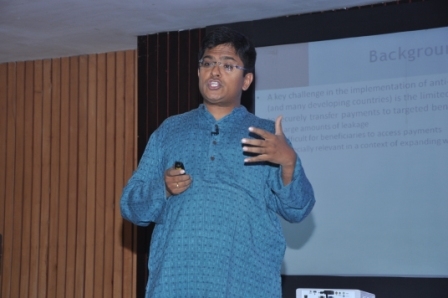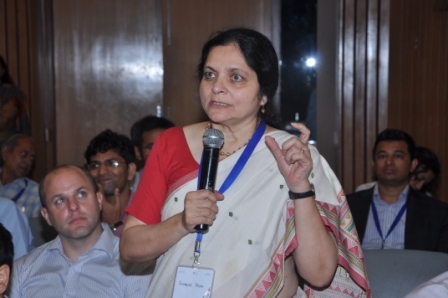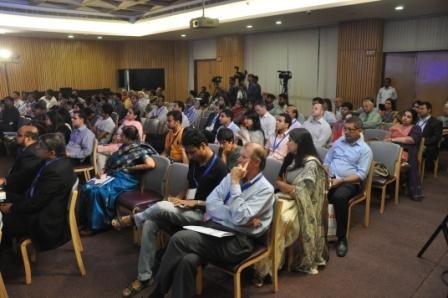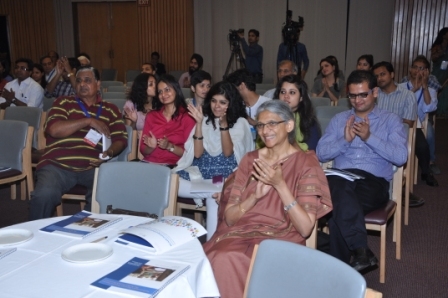Building State Capacity for Better Program Implementation: Evidence from Biometric Smartcards in India
02 Apr 2014
Past Event
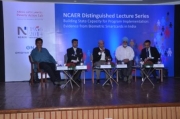
In this lecture organised by the NCAER, Karthik Muralidharan presented results from a path-breaking three-year study, undertaken jointly with Paul Niehaus (UCSD) and Sandip Sukhtankar (Dartmouth), on the impact of using biometrically-authenticated Smartcards to make payments to NREGS and Pension beneficiaries in Andhra Pradesh. Montek Singh Ahluwalia, Deputy Chairman, Planning Commission presided as the Chief Guest at the lecture. Nachiket Mor, Board Chair of CARE India, also spoke on the ocassion.
Social protection programs in India are often plagued with leakage and corruption, and beneficiaries face several challenges in accessing payments. One of the most promising attempts to increase state capacity to effectively implement programs is India’s ambitious initiative to provide all residents with biometrically-authenticated Aadhar numbers linked to bank accounts, which can be used to directly transfer benefits. While this is a promising initiative, skeptics have raised several concerns including implementation challenges, subversion by vested interests, exclusion errors, and cost effectiveness.
The Andhra Pradesh Smartcard Program used biometrically-authenticated Smartcards to make payments under NREGS and Social Security Pensions and was a functional pre-cursor to the integration of Aadhar with these programs. Prof. Muralidharan presented results from a large-scale, scientifically rigorous, randomized impact evaluation of the AP Smartcard program on beneficiary experiences and leakage. The study finds that the new technology delivered a faster, more predictable, and less corrupt payments process that was also highly cost-effective (in spite of several implementation challenges). The results suggest that investing in secure authentication and payment infrastructure can significantly enhance “state capacity” to effectively implement a broad range of programs.
Karthik Muralidharan is Assistant Professor of Economics at the University of California, San Diego, and a Non-resident Fellow at the NCAER. He is also affiliated with the NBER, BREAD, and J-PAL.







